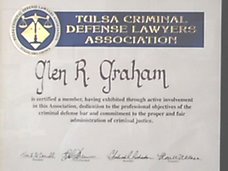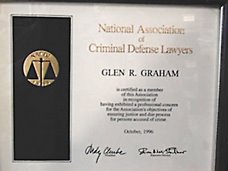Subject: New: State v. Franks - Specific over general - Misdemeanor - larceny of merchandise 2nd instead of Felony petite larceny recidiviist
http://www.oscn.net/applications/oscn/deliverdocument.asp?citeid=447946
New: 7-26-06:
STATE v. FRANKS, S-2005-607, 2006 OK CR 31, Decided 07/26/2006
Avery Lloyd Franks was charged with the crime of Petit Larceny, after former conviction of Petit Larceny, in the District Court of Tulsa County, Case Number CF-2004-5303, in violation of 21 O.S.2001, § 51.3 (3). The crime is a felony punishable by imprisonment for a term not exceeding five (5) years. The information listed three prior convictions: grand larceny; petit larceny, afcf; and larceny of merchandise from a retailer. The trial judge sustained the motion, treating it as a timely motion to quash due to the fact that Franks had stood mute and never entered a plea. The trial judge ruled “the evidence at trial more properly reflected the offense of larceny of merchandise from a retailer, second offense.” He ordered the case transferred to misdemeanor court and the State to file an amended information. The State then filed this appeal. The Court of Criminal Appeals denied the State's Appeal.
In the instant case, the prosecutor charged Franks under the general petit larceny statute (via the recidivist [felony] provision in 21 O.S.2001, § 51.3(3)) rather than the more specific crime of (misdemeanor) larceny of merchandise from a retailer, second offense, under 21 O.S.2001, § 1731 (2). This was wrong and thwarted the legislature’s intent that larceny crimes from retail outlets should be brought under section 1731. This case pits two legal principles against each other. The first is the well-recognized principle that prosecutors have broad discretion in deciding what charges to bring, a principle with which we heartily agree. The second principle arises under common law and provides that specific statutes control general ones. This second rule comes into play when the charges brought under a more general statute “thwart” the legislative intent in enacting the more specific one.
Specific over General - Misdemeanor Larcency of Merchandise from Retailer Instead of Felony Petite Larceny Recidivist
Subscribe to:
Post Comments (Atom)




No comments:
Post a Comment